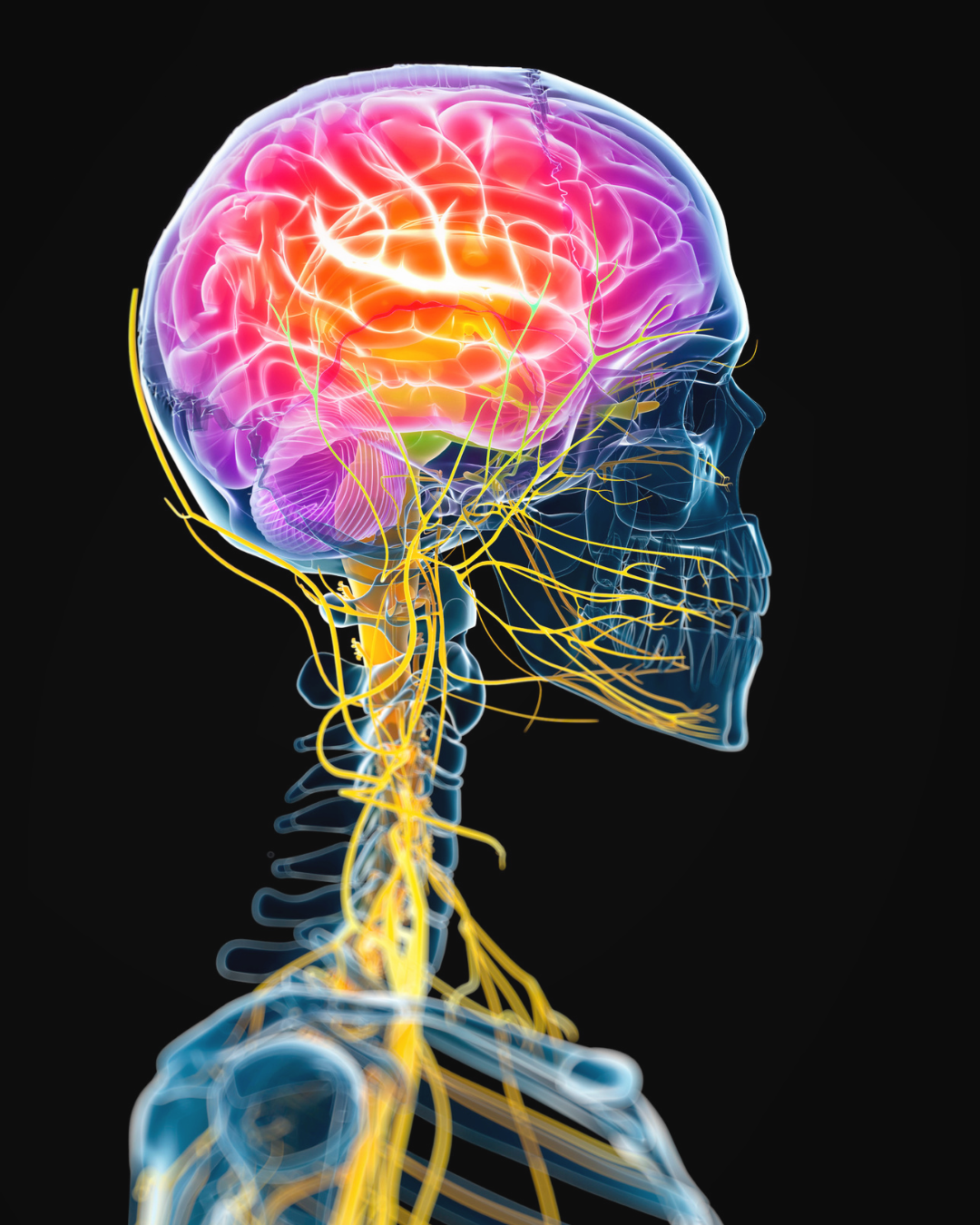Co-Occurring Disorders Treatment in Virginia
Comprehensive treatment addressing both addiction and mental health conditions simultaneously. Our integrated approach treats the whole person for lasting recovery and improved quality of life.
Get Help TodayCo-occurring disorders, also known as dual diagnosis, affect millions of Americans who struggle with both addiction and mental health conditions simultaneously. At Williamsville Wellness, we understand that these conditions are often interconnected, requiring specialized treatment that addresses both issues together rather than treating them separately.
Understanding Co-Occurring Disorders
Co-occurring disorders occur when someone experiences both a mental health condition and a substance use disorder at the same time. These conditions often feed off each other, creating a complex cycle that requires specialized treatment.
Unlike traditional approaches that treat addiction and mental health separately, integrated treatment addresses both conditions simultaneously, recognizing that they are often interconnected and influence each other significantly.
Research shows that people with mental health conditions are more likely to develop substance use disorders, and vice versa. This makes comprehensive, dual-focused treatment essential for successful recovery.

Most Common Co-Occurring Disorders
While any mental health condition can co-occur with addiction, certain combinations are more frequently seen in treatment settings:
Depression & Substance Use
Major depression frequently co-occurs with alcohol and drug addiction, often as both cause and consequence of substance use.
Anxiety Disorders & Addiction
Panic disorder, generalized anxiety, and social anxiety often lead to self-medication with alcohol or drugs.
Bipolar Disorder & Substance Use
Individuals with bipolar disorder have high rates of co-occurring addiction, particularly during manic or depressive episodes.
PTSD & Addiction
Post-traumatic stress disorder frequently co-occurs with substance use as individuals attempt to cope with trauma symptoms.
ADHD & Substance Use
Attention-deficit/hyperactivity disorder often co-occurs with addiction, particularly stimulant abuse or self-medication attempts.
Personality Disorders & Addiction
Borderline personality disorder and other personality disorders frequently co-occur with substance use disorders.
Recognizing Co-Occurring Disorders
Identifying co-occurring disorders can be challenging because symptoms often overlap. Here are key warning signs to watch for:
Mental health symptoms that may indicate co-occurring disorders include:
- Persistent sadness or depression lasting more than two weeks
- Extreme mood swings or dramatic changes in personality
- Excessive worry, fear, or anxiety that interferes with daily life
- Difficulty concentrating or making decisions
- Sleep disturbances including insomnia or sleeping too much
- Social withdrawal and isolation from family and friends
- Thoughts of suicide or self-harm
- Hallucinations or delusions (seeing or believing things that aren't real)
Substance use symptoms that may co-occur with mental health issues:
- Using substances to cope with emotional problems or mental health symptoms
- Increased tolerance requiring more substances to achieve the same effect
- Withdrawal symptoms when not using substances
- Failed attempts to quit or reduce substance use
- Neglecting responsibilities at work, school, or home due to substance use
- Continued use despite consequences such as legal, financial, or relationship problems
- Spending excessive time obtaining, using, or recovering from substances
- Using substances in dangerous situations such as driving while intoxicated
When co-occurring disorders are present, their combined impact often includes:
- Deteriorating work or academic performance due to both mental health and substance use issues
- Relationship problems with family, friends, and romantic partners
- Financial difficulties from job loss or excessive spending on substances
- Legal problems related to substance use or erratic behavior
- Physical health issues from both substance use and untreated mental health conditions
- Increased risk-taking behaviors when mental health symptoms and substance use combine
- Difficulty maintaining personal hygiene and self-care routines
- Frequent mood changes that seem excessive even considering substance use

Why Co-Occurring Disorders Develop
Co-occurring disorders can develop through several interconnected pathways:
- Self-Medication: People with mental health conditions may use substances to cope with symptoms, leading to addiction.
- Genetic Predisposition: Family history of both mental illness and addiction increases risk for both conditions.
- Brain Chemistry: Both conditions affect similar brain regions and neurotransmitter systems.
- Environmental Factors: Trauma, stress, and adverse life experiences can trigger both conditions.
- Substance-Induced Symptoms: Drug and alcohol use can trigger or worsen mental health symptoms.
- Shared Risk Factors: Both conditions share common risk factors like genetics, trauma, and stress.
Frequently Asked Questions About Co-Occurring Disorders Treatment
Get answers to common questions about our integrated treatment approach:
Co-occurring disorders treatment takes an integrated approach that addresses both addiction and mental health conditions simultaneously:
- Comprehensive assessment: We evaluate both substance use patterns and mental health symptoms
- Integrated treatment planning: Treatment plans address both conditions as interconnected rather than separate issues
- Medication management: Psychiatric medications are carefully coordinated with addiction treatment
- Specialized therapies: We use evidence-based approaches specifically designed for co-occurring disorders
- Extended treatment focus: Longer treatment duration to address the complexity of multiple conditions
- Coordinated care team: Mental health professionals and addiction specialists work together
This integrated approach leads to better outcomes than treating each condition separately, as it addresses the root causes and interconnections between mental health and addiction.
Williamsville Wellness offers several unique advantages for treating co-occurring disorders:
- 15+ individual therapy sessions weekly: Far more one-on-one time than typical treatment centers
- Specialized dual diagnosis expertise: Our team has extensive experience with co-occurring disorders
- Small, intimate setting: Only 14 beds allows for highly personalized care
- Comprehensive psychiatric services: On-site psychiatric evaluation and medication management
- Trauma-informed care: Addressing underlying trauma that often contributes to both conditions
- Extended treatment options: Flexible program lengths to address complex needs
- Family involvement: Including family in treatment to address relationship dynamics
- Holistic approach: Addressing mind, body, and spirit for complete healing
Our intensive individual therapy model allows us to address the unique combination of factors contributing to each person's co-occurring disorders.
Treatment length for co-occurring disorders typically requires more time than single-condition treatment:
- Residential treatment: Our standard 28-day program, often extended to 45-60 days for complex cases
- Virtual PHP: 4-6 weeks of intensive daily programming
- Virtual IOP: 8-12 weeks of structured outpatient treatment
- Ongoing support: Aftercare planning and continued mental health treatment
The complexity of co-occurring disorders often requires longer treatment to achieve stability in both areas. Many clients benefit from stepping down from residential to outpatient care to ensure continued progress and prevent relapse.
Yes, we have experience treating a wide range of mental health conditions alongside addiction:
- Mood disorders: Depression, bipolar disorder, persistent depressive disorder
- Anxiety disorders: Generalized anxiety, panic disorder, social anxiety, specific phobias
- Trauma-related disorders: PTSD, complex trauma, acute stress disorder
- Attention disorders: ADHD and related attention/concentration issues
- Personality disorders: Borderline personality disorder and other personality disorders
- Obsessive-compulsive disorders: OCD and related conditions
Our clinical team conducts thorough psychiatric evaluations to accurately diagnose and develop appropriate treatment plans for each individual's unique combination of conditions.
Most insurance plans provide coverage for co-occurring disorders treatment under both mental health and substance abuse benefits:
- We accept major insurance providers including Anthem, UnitedHealthcare, Cigna, and many others
- The Mental Health Parity Act mandates that insurance plans cover mental health and addiction treatment on equal terms with physical health care.
- Our admissions team provides free, confidential insurance verification
- We help maximize your benefits and explain coverage details
- Payment plans are available for any out-of-pocket expenses
Don't let insurance concerns prevent you from getting help. Contact us for a free insurance verification to understand your coverage options.
"I thought I just had a drug problem, but found out I had an attitude problem also. The therapists at Williamsville helped me understand how my depression and anxiety were connected to my addiction. For the first time, I'm treating both issues together and finally feeling like myself again."
Our Integrated Treatment Approach
Serving Richmond, Virginia and Beyond
Our co-occurring disorders treatment center is located in peaceful Hanover County, just minutes from Richmond. While we proudly serve clients from throughout Virginia and surrounding states, we welcome individuals from anywhere in the country who are willing to make the journey for specialized integrated treatment. Our virtual programs also make it possible to receive our care without travel.
Co-occurring disorders require specialized care that understands the complex relationship between mental health and addiction. Our integrated approach treats both conditions simultaneously, addressing root causes rather than just symptoms for lasting recovery.
Comprehensive Integrated Treatment Process
Comprehensive Assessment
Thorough evaluation of both substance use patterns and mental health conditions to understand their interaction
Psychiatric Evaluation
Professional psychiatric assessment and medication management integrated with addiction treatment
Integrated Treatment Planning
Customized treatment plans addressing both conditions simultaneously with coordinated interventions
Ongoing Monitoring
Continuous assessment and adjustment of treatment approaches as both conditions improve
Evidence-Based Therapies for Co-Occurring Disorders
Cognitive Behavioral Therapy
Addresses thought patterns and behaviors contributing to both addiction and mental health symptoms
Dialectical Behavior Therapy
Builds skills in emotional regulation, distress tolerance, and interpersonal effectiveness
Trauma-Focused Therapy
Addresses underlying trauma that often contributes to both addiction and mental health issues
Schema Therapy
Identifies and changes deep-rooted patterns and beliefs that fuel both conditions
Family Systems Therapy
Addresses family dynamics and builds support systems for both mental health and recovery
Acceptance & Commitment Therapy
Helps develop psychological flexibility and values-based living while managing symptoms
Why Choose Integrated Treatment?
Research consistently shows that treating co-occurring disorders simultaneously produces better outcomes than sequential treatment. When addiction and mental health conditions are addressed together, clients experience:
- Lower relapse rates for both conditions
- Improved medication compliance
- Better overall functioning and quality of life
- Reduced hospitalization rates
- Stronger family relationships
- More successful return to work or school

Virtual Treatment Options
For individuals unable to attend residential treatment or those transitioning from inpatient care, we offer comprehensive virtual treatment programs specifically designed for co-occurring disorders:
- Virtual Partial Hospitalization (PHP): Intensive daily programming with psychiatric services
- Virtual Intensive Outpatient (IOP): Flexible scheduling with comprehensive integrated care
- Individual therapy sessions: One-on-one treatment with co-occurring disorders specialists
- Psychiatric consultations: Medication management via secure telehealth platforms
Whether you choose residential or virtual treatment, Williamsville Wellness provides the specialized care needed to address both addiction and mental health conditions effectively. Our integrated approach recognizes that these conditions are interconnected and require coordinated treatment for optimal outcomes.
Take the First Step Toward Integrated Healing
Don't let co-occurring disorders control your life. Our specialized treatment team is ready to help you address both addiction and mental health together.
Call Now: 804-655-0094

